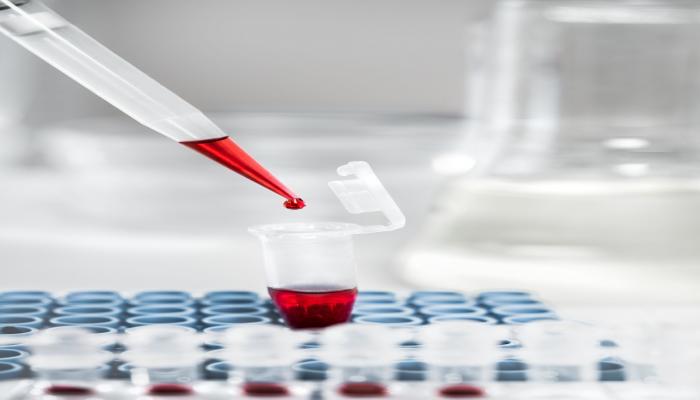建立日期 3548
主題: aHUS會造成病人哪些嚴重的併發症?


aHUS會造成病人哪些嚴重的併發症?
因為aHUS 病人血液中的補體調控因子或補體本身發生了突變,所以凡有血液流經的器官都有可能受到侵害,造成血栓的產生,使得器官因為血栓造成器官衰竭 ; 最常出現在腎臟,但也可能發生在任何其他身體的器官上,例如心臟、腦部、肝臟、胰臟、眼睛,甚至皮膚。
假如不給予立即的治療,病人器官有可能會急性衰竭或是功能喪失,最終造成器官永久性衰竭,甚至可能造成病人因為器官衰竭死亡[7,10-17]。
參考文獻:
7. Caprioli J, Noris M, Brioshi S, et al. Genetics of HUS: the impact of MCP, CFH, and IF mutations on clinical
presentation, response to treatment, and outcome. Blood 2006;108:1267-79.
10. Ohanian M, Cable C, Halka K. Eculizumab safely reverses neurologic impairment and eliminates need for dialysis in
severe atypical hemolytic uremic syndrome. Clin Pharmacol. 2011;3:5-12.
11. Noris M, Remuzzi G. Cardiovascular complications in atypical haemolytic uraemic syndrome. Nat Rev Nephrol.
2014;10(3):174-180.
12. Sallée M, Daniel L, Piercecchi MD, et al. Myocardial infarction is a complication of factor H-associated atypical HUS.
Nephrol Dial Transplant. 2010;25(6):2028-2032.
13. Sellier-Leclerc AL, Fremeaux-Bacchi V, Dragon-Durey MA, et al. Differential impact of complement mutations on clinical
characteristics in atypical hemolytic uremic syndrome. J Am Soc Nephrol. 2007;18(8):2392-2400.
14. Fremeaux-Bacchi V, Fakhouri F, Garnier A, et al. Genetics and outcome of atypical hemolytic uremic syndrome:
a nationwide French series comparing children and adults. Clin J Am Soc Nephrol. 2013;8(4):554-562.
15. Laurence J. Atypical hemolytic uremic syndrome (aHUS): making the diagnosis. Clin Adv Hematol Oncol.
2012;10(suppl 17):1-12.
16. Legendre CM, Licht C, Muus P, et al. Terminal complement inhibitor eculizumab in atypical hemolytic-uremic syndrome.
N Engl J Med. 2013;368:2169-2181.
17. Nester CM, Thomas CP. Atypical hemolytic uremic syndrome: what is it, how is it diagnosed, and how is it treated?
Hematology Am Soc Hematol Educ Program. 2012;2012:617-625.
因為aHUS 病人血液中的補體調控因子或補體本身發生了突變,所以凡有血液流經的器官都有可能受到侵害,造成血栓的產生,使得器官因為血栓造成器官衰竭 ; 最常出現在腎臟,但也可能發生在任何其他身體的器官上,例如心臟、腦部、肝臟、胰臟、眼睛,甚至皮膚。
假如不給予立即的治療,病人器官有可能會急性衰竭或是功能喪失,最終造成器官永久性衰竭,甚至可能造成病人因為器官衰竭死亡[7,10-17]。
參考文獻:
7. Caprioli J, Noris M, Brioshi S, et al. Genetics of HUS: the impact of MCP, CFH, and IF mutations on clinical
presentation, response to treatment, and outcome. Blood 2006;108:1267-79.
10. Ohanian M, Cable C, Halka K. Eculizumab safely reverses neurologic impairment and eliminates need for dialysis in
severe atypical hemolytic uremic syndrome. Clin Pharmacol. 2011;3:5-12.
11. Noris M, Remuzzi G. Cardiovascular complications in atypical haemolytic uraemic syndrome. Nat Rev Nephrol.
2014;10(3):174-180.
12. Sallée M, Daniel L, Piercecchi MD, et al. Myocardial infarction is a complication of factor H-associated atypical HUS.
Nephrol Dial Transplant. 2010;25(6):2028-2032.
13. Sellier-Leclerc AL, Fremeaux-Bacchi V, Dragon-Durey MA, et al. Differential impact of complement mutations on clinical
characteristics in atypical hemolytic uremic syndrome. J Am Soc Nephrol. 2007;18(8):2392-2400.
14. Fremeaux-Bacchi V, Fakhouri F, Garnier A, et al. Genetics and outcome of atypical hemolytic uremic syndrome:
a nationwide French series comparing children and adults. Clin J Am Soc Nephrol. 2013;8(4):554-562.
15. Laurence J. Atypical hemolytic uremic syndrome (aHUS): making the diagnosis. Clin Adv Hematol Oncol.
2012;10(suppl 17):1-12.
16. Legendre CM, Licht C, Muus P, et al. Terminal complement inhibitor eculizumab in atypical hemolytic-uremic syndrome.
N Engl J Med. 2013;368:2169-2181.
17. Nester CM, Thomas CP. Atypical hemolytic uremic syndrome: what is it, how is it diagnosed, and how is it treated?
Hematology Am Soc Hematol Educ Program. 2012;2012:617-625.